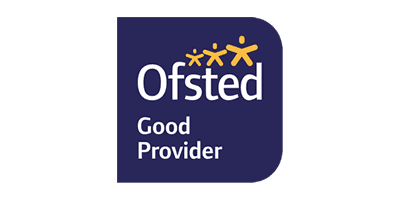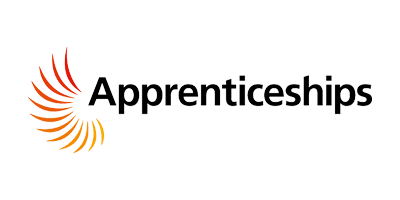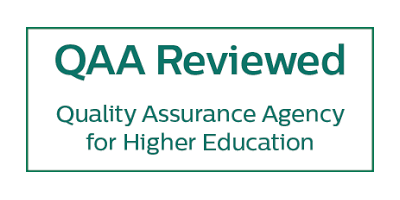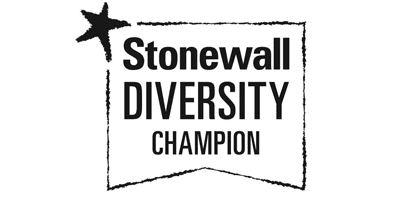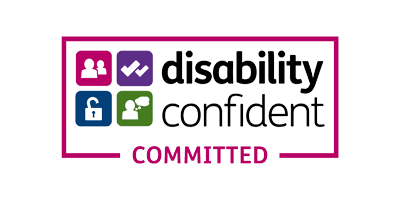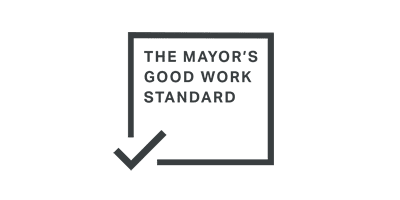Month: June 2020
Students at the College of Haringey Enfield and North East London have praised their tutors for their ‘most incredible support’ during lockdown. The college has been inundated with thank you messages to its teaching staff who have continued to provide lessons online during the coronavirus pandemic.
Engineering student Mohamad Fadi Abou Swid, 19, said: “Even though this pandemic meant I was away from your classes, I have learnt a lot from you and I’m sure that will allow me to be a good engineer in the future. Thank you so much.”
Business student Sherry Fernandes, also 19, said: “Thank you for acknowledging that all of us are going through a hard time one way or another due to this virus.”
Julie Bromwich, 65, who recently took a free short course in Creating and Publishing Webpages, said: “I learnt so much in your class, and under the most difficult of circumstances with Covid lockdown, you still managed to give the most incredible support.”
Teachers have been presenting classes on Microsoft Teams and coming up with innovative ways to give online lessons during the crisis.
Construction tutor Paul Oatham has overcome the difficulty of teaching practical lessons by giving video demonstrations around his own house.
In one lesson he showed how to fix the guttering on his garage and in another he explained how the levers on his boiler affected different taps.
Paul said: “The transition from the classroom to the remote desktop has posed some interesting challenges, and I have had to really think long and hard about what is the best approach to benefit the learners.
“The students themselves have embraced it and on the whole have been engaged. It has just been a matter of getting used to it.”
Creative and Media students have used the Covid-19 pandemic as inspiration while developing their skills in photography and videomaking.
Student Jose Bravocuno, 32, said: “Art is the best medicine for this situation, so during lockdown I’ve prepared my own studio. The virtual lessons are good. I`m learning how to use new technologies and methods of learning.”
In Sport, teachers have devised fun, physical and interactive lessons and workout plans to keep students learning and active.
Sports diploma student Pierrette Simuene, 18, said: “The online classes have been incredibly good, and the experience has been better than I expected. It’s as if we were in college.”
Our free short courses are running online throughout the summer – take a look at the full range on offer here.
Today, Monday 22 June, marks the 72nd anniversary of the arrival in the UK of the ship Empire Windrush, which brought hundreds of people from the Caribbean to start new lives in the UK. Known as Windrush Day since 2018, it’s the perfect time to get a better understanding of the experience of people from the Caribbean who were called by the British government to help rebuild the country in 1948, and the terrible injustice that many of them and their families face, even now, with the ongoing Windrush Scandal.
What is Windrush?
The Empire Windrush is the name of the ship which brought around 500 Commonwealth UK Citizens from the Caribbean to the Tilbury Docks in Essex in 1948.
Why did they come over?
Thousands of buildings had been bombed and houses destroyed in World War Two. As Britain was recovering, it needed help to rebuild the economy. Under British rule, many young men and women from the Caribbean had served the British armed forces. Adverts were placed offering an array of different jobs (in the coal and steel industries, public transport and in the NHS) and inviting them to come over for a better life. In 1948 Many young Caribbeans took up the opportunity and made the long voyage by ship across the Atlantic. Around 550,000 people from the Caribbean arrived in the UK between 1948 – 1971 and are referred to as the ‘Windrush generation’.
What happened when they arrived?
Once in Britain, many of this generation did not get the welcome they had anticipated. They were confronted with racism, discrimination with many of them were unable to find homes or work. Many companies said they didn’t want black people working for them and their children were bullied at school.
What is the Hostile Environment Policy?
The Hostile Environment Policy came into effect in October 2012 by then Prime Minister, Theresa May. Her aim “was to create in Britain a really hostile environment for illegal migration”. The Home Office had destroyed the Landing records which gave the Windrush generation the right to live legally in the UK. Without any documentation they could not work, a number were sacked, they were no longer entitled to NHS treatment and were faced with deportation. One of the most notable cases was Anthony Bryan who had lived in England for 52 years and was wrongfully imprisoned. His story has been turned into the BBC’s feature length film ‘Sitting in Limbo’.
What happened next?
The government faced huge a backlash and protests took place in response to the racist way that UK Commonwealth citizens of colour have been treated. It has now been dubbed the ‘Windrush Scandal’.
Then Home Secretary, Amber Rudd, was forced to resign and was replaced by Sajid Javid. After a review of 11,800 cases in August 2018, he stated that 18 members of the Windrush generation had been wrongfully removed and would get an apology from the government. He also stated that those who had left the UK would get help to return.
Theresa May apologised to Caribbean leaders and reassured them the none from the Windrush generation would be forced to leave the UK.
The government also announced that a day celebrating the contribution of the Windrush generation and their descendants – Windrush Day – would be held annually on 22 June.
For an update on the Windrush Scandal please visit The Guardian’s website here.
A printer furloughed during the coronavirus pandemic from the job he has done for more than 20 years has told how he is looking forward to a new career as a plumber.
Father of three Tim Mansfield, 38, from Woodford, north London, returned to college in March 2019 having been concerned about the future of the printing industry.
He initially enrolled on a free Plumbing for Beginners short course and is set to complete a Plumbing Level 2 Diploma at CONEL this summer.
The diploma was also free – CONEL is London’s First FREE College, and all courses from Entry Level to Level 2 are free to students, regardless of their age or income.
Tim said: “I’ve spent 22 years in printing and the demand for paper-based products has been decreasing. I was concerned about my job situation, and thought it was time to make the jump.
“CONEL’s free short courses were exactly what I needed. They gave me the opportunity to try different trades without having to overcommit until I knew what I wanted to pursue more seriously. If they hadn’t been free, I’m not sure I would have taken the chance.
“The teachers are well-qualified and approachable, and always on hand with advice and support. I’ve made some great friends at CONEL and learnt some great skills that I fully intend build upon in my future career. I’m excited about starting a new chapter.”
CONEL has been offering free short courses for more than two years with many students going on to study at higher levels to get the skills they need for further study or employment.
Courses are available in accounting, business, construction, hairdressing, beauty therapy, healthcare, childcare, English, maths, IT, engineering, hospitality, culinary arts, science and sport.
All courses at CONEL are available through online distance learning during the COVID-19 outbreak.
Paul Oatham, Curriculum Manager for Construction, said: “The free short plumbing courses have proved very popular with those looking at new careers, or just wanting to learn a new skill that can help them with jobs around the house.
“Tim is one of the many success stories that we have had. He applied himself well during his studies and I wish him all the best in his plumbing career.”
The government lockdown has been a testing time for hundreds of thousands of people across the UK. For student Victoria Oki, it was the final hurdle, in a long list of setbacks, that stood in her way of achieving her Business Administration Advanced Apprenticeship.
Working at North Middlesex Hospital as a Ward Clerk, Victoria is studying her apprenticeship through Capital City College Training and the College of Haringey, Enfield and North East London. By sitting her exam during lockdown after a series of setbacks and achieving an impressive Distinction, she proved that with grit and determination, not even a pandemic could hold her back from achieving her dream of becoming a project manager.
Like many people across the globe, the arrival of Coronavirus meant life as we knew it was put on hold as the world dealt with this unprecedented crisis. Student Victoria Oki had her heart set on completing the Business Administration Advanced Apprenticeship last year but due to unforeseen circumstances this was not to be. A three month illness meant Victoria was unable to study or work, setting her behind. Looking back at those months Victoria said, “It was a difficult time because I knew I was really falling behind and I had my heart set on finishing by September 2019. Sometimes things are just out of our control.”
On the road to recovery, Victoria worked night and day to catch up. However, in December she faced another setback when her handbag was stolen. Inside her bag was a flash drive holding her entire project to date. Devasted, Victoria sought a way to come back from this major setback. Realising that she’d sent a rough copy to her tutor a while back she was able to utilise her project management skills and piece her project back together.
“I have a good relationship with a fellow student who I worked closely with. We have the same drive and work ethic and we push each other. Together we set a goal to get a distinction and we went for it!” With lockdown now in place they set up study groups via Zoom, hit the books and practiced for the final assessment, a critique of her project.
The day of the assessment came and Victoria spent an hour face to face with an assessor on Zoom. “I was able to share my screen on Zoom and talk through my portfolio. It was tough and she asked a lot of in depth questions. I had worked really hard up to this point and after everything I’d been through, this was the final hurdle,” Victoria said.
Victoria passed with an astonishing Distinction. She is currently working a Ward Clerk at North Middlesex Hospital and has been throughout the lockdown. She said, “I am so pleased. All of my hard work has paid off and I never gave up. You can do anything if you put your mind to it. I’m really proud of myself. My end goal is to be a Project Management within the NHS and after everything I’ve been through, I know I can achieve it.”
The death of 46-year-old African American George Floyd at the hands of a white police officer, Derek Chauvin, in Minneapolis has shocked and saddened the world. Floyd was arrested for allegedly using counterfeit money to buy a packet of cigarettes. Chauvin then knelt on Floyd’s neck, as a means of detaining him, for 8 minutes and 26 seconds. Floyd was repeatedly heard saying “I can’t breathe.” After 6 minutes he became unresponsive and bystanders were calling on the officers to check his pulse, although all the officers at the incident did nothing.
On 3 June 2020 Mr Chauvin was charged with second-degree murder. The three other officers involved have been charged with aiding and abetting second-degree murder and second-degree manslaughter.
This cruel chain of events caused outrage across the world and has opened up an uncomfortable but necessary dialogue regarding white privilege, police brutality and racial inequality. It has made us as individuals, and society as a whole, look at ourselves and ask some tough questions.
We are a multicultural college and we are proud of the rich and diverse backgrounds of our staff, students and wider community. We stand firm against any actions of hate and racism, which goes against our core values. At CONEL, and within Capital City College Group, we believe in the power of education, and that now is the time for learning and taking action. We can all become part of the change that is needed.
“Education is the most powerful weapon which you can use to change the world.” Nelson Mandela
In the UK, thousands have protested in solidarity, in cities including London, Liverpool, Cardiff, Glasgow, Bristol and Manchester. They have also drawn attention to the fact that: “the UK is not innocent” – due to the UK’s key role in the Atlantic slave trade; as owners of industries built on slavery; the racist nature of the British Empire. They have also highlighting many cases where British black people have died following the actions of authorities, as well as the institutional racism which many feel is still prevalent in many parts of the UK.
George Floyd’s death has affected so many because it did not come as shock. In 2020, that in itself, is shocking.
What is #BlackLivesMatter?
#BlackLivesMatter is an international human rights movement which was founded in America in 2013 in response to 17 year old Trayvon Martin being shot dead by a man called George Zimmerman, who was later acquitted. Their mission is to “eradicate white supremacy and build local power to intervene in violence inflicted on Black communities by the state and vigilantes.”
They have since used a diverse range of tactics, from protesting to online campaigns. They lobby for intergenerational diversity, globalism, empathy and restorative justice. Reactions to the movement have been varied and the phrase “All Lives Matter” has become a counter response. This has been criticised as a fundamental misunderstanding of the #BlackLivesMatter message, which seeks to further compound the problem and highlight the issue.
How can I make meaningful change?
There are many ways in which you can take a stand to make meaningful change. At CONEL, we believe knowledge is power and there are an abundance of resources and information. Below is list of resources which you can read, watch, listen to and take action.
Read
- Mother Country: Real Stories of the Windrush Children by Charlie Brinkhurst-Cuff
- Black and British: A Forgotten History by David Olusoga
- Me and White Supremacy: How to Recognise Your Privilege, Combat Racism and Change the World by Layla Saad
- Americanah by Chimamanda Ngozi Adichie
- How To Be An Anti-Racist by Ibram X. Kendi
- The New Jim Crow: Mass Incarceration in the Age of Colorblindness by Michelle Alexander
- The Fire Next Time by James Baldwin
- Natives: Race and Class in the Ruins of Empire by Akala
- Why I’m No Longer Talking To White People About Race by Reni Eddo-Lodge
- Don’t Touch My Hair by Emma Dabiri
- The Good Immigrant edited by Nikesh Shukla & Chimene Suleyman
- Brit-ish: On Race, Identity and Belonging by Afua Hirsch
Watch
- I Am Not Your Negro (2016)
- The Black Power Mixtape 1967-1975 (2011)
- When They See Us (2019)
- Did You Wonder Who Fired the Gun? (2017)
- Do the Right Thing (1989)
- Let the Fire Burn (2013)
- If Beale Street Could Talk (2018)
- Malcom X (1992)
- 13th (2016)
- Just Mercy (2019)
- Mississippi Masala (1991)
Listen
Intersectionality Matters with Kimberlé Crenshaw: “When Kimberlé Crenshaw coined the term intersectionality 30 years ago, it was a relatively obscure legal concept. Learn from the Black scholar and activist about what intersectionality looks like in practice and how to continue the fight for justice for Black women.”
Seeing White: “Just what is going on with white people? Police shootings of unarmed African Americans. Acts of domestic terrorism by white supremacists. The renewed embrace of raw, undisguised white-identity politics. Scene on Radio host and producer John Biewen took a deep dive into these questions, along with an array of leading scholars and regular guest Dr. Chenjerai Kumanyika, in this 14-part documentary series, released between February and August 2017.”
New York Times’ 1619: “The past is never the past, and we can never forget this country’s foundation of subjugating Black people and people of colour. This podcast is part of an extensive New York Times project offering insight into the four centuries since American slavery began and the legacy that continues to plague Black Americans.”
NPR’s Code Switch: “Racism is omnipresent in American society, and until we name it we can’t address it. Code Switch shines a light on the pervasive nature of racism, from language and workplace culture to social norms. First we identify the problems, then we work to dismantle them.”
Do
- Petition
Demand a sweeping reform mandating a zero-tolerance approach in penalising and/or prosecuting police officers who kill unarmed, non-violent, and non-resisting individuals in an arrest. Sign the petition here.
Justice for Belly Mujinga, the railway worker who died from coronavirus after she was spat on by a man claiming to have COVID-19. You can sign the petition and email your MP to ask them to support further investigation into Mujinga’s death. Sign the petition here. Find your local MP’s contact details here.
Justice for Breonna Taylor, the Black emergency medical technician who was fatally shot in her apartment by the Louisville Metro Police Department. Sign the petition here.
Write to your MP to demand the UK government publishes and delivers actionable results relating to the Black, Asian and Minority Ethnic (BAME) COVID report. Find your local MP’s contact details here.
Demand the UK takes a stand against police brutality and racism.
You can use this email template to write to your MP here.
- Donate
George Floyd Memorial Fund: established to cover funeral and burial expenses, mental and grief counselling, lodging and travel for all court proceedings
UK Black Lives Matter: a coalition of Black activists and organisers working across the UK, coordinating activity since 2016 for justice
RIP Belly Mujinga: originally set up for Belly Mujinga’s funeral with further funds going toward supporting her young daughter
National Memorial Family Fund: for the families of victims of police brutality
UK Black Protest Legal Support: a hub of lawyers and legal advisors providing free legal advice and representation to UK Black Lives Matter activists and protesters
The Stephen Lawrence Charitable Trust: “works with young people from disadvantaged backgrounds aged 13 to 30 to inspire and enable them to succeed in the career of their choice” as well as working to “influence others to create a fairer society in which everyone, regardless of their background, can flourish”.
- Talk to each other
If you want to discuss any issues or your thoughts relating to the Black Lives Matter movement, message us on our social media channels and let’s start a discussion to create a positive racial legacy. Staff can call our confidential and anonymous Employee Assistance Programme (LifeWorks on 0800 169 1920) to talk about any issues that they are struggling with. You can also speak to us through our social media platforms.
- Protest or attend demonstrations
In light of the current pandemic, people are taking the difficult decision to break social distancing regulations in order to protest. In a joint statement UK Chief Constables said that the right to lawfully protest is a “key part of our democracy” but stressed the importance of keeping within the current Covid-19 guidelines. We’ve seen many peaceful and safe protests taking place around our college sites, including at the Bernie Grant Arts Centre in Tottenham.
#SayTheirName #TakeTheKnee #BlackLivesMatter #BAME Socially distanced protest today (Thurs 4th) against huge BAME death toll from #COVID19 and racial injustice in US and UK – Bernie Grant Arts Centre, Tottenham. Rest in power NHS worker Alonzo Smith. #BellyMujinga & #GeorgeFloyd pic.twitter.com/vW35skKhJZ
— Haringey Stand Up To Racism (@HaringeySUTR) June 4, 2020
So, if you choose to protest, please do so peacefully and carefully:
- Observe social distancing rules. The current guidelines are to mix with individuals from no more than six other households and to stay 2m apart.
- Wear a face mask and wash your hands as regularly as possible. Be prepared for a lot of facilities being closed and bring hand sanitiser gel.
- It will be a long day, so go prepared with comfortable clothing, water and snacks.
- Make sure your phone is charged and has emergency contact numbers stored. Let someone know where you are going who you can regularly check in with to let them know you’re safe.
What we are doing and will do
At CONEL (and Capital City College Group, as a whole) we commit not just to non-racism, but active anti-racism.
We have strong practices around equality, diversity and inclusivity and Schemes of Work for curriculum lessons, tutorials sessions and enrichment calendars reflect equality and diversity themed activities or events. Here is just some of the excellent work taking place around our colleges:
Students
- Students’ Unions (SU): our SU work together with external organisations to raise awareness and create opportunities for change. This academic year the SU has focused on youth violence and knife crime. They have been working with Citizens UK on a campaign to raise awareness of young people’s rights around Stop and Search.
- Black History Month: a display was created which told the story of how the month was established and promoted prominent books such as They Can’t Kill Us All: The Story of Black Lives Matter.
- Abolition of Slavery: we displayed a range of thought provoking photos and information covering some of the key members of the abolitionist movement and the broad socio-economic context of the movement.
- Curriculum: we strongly embed ED&I within all curriculum. Within GCSE English key themes have been linked through Schemes of Learning and lesson plans. We hold key themed months such as Black History, International Women’s Day and LGBT+ History Month, which has allowed for greater awareness in the student cohort and members of these communities to grow in confidence and be an active member of the student community.
Staff
- Recruitment: The Group recognise that monitoring is a key system to assess progress in equality. Active steps are taken to encourage both internal and external BAME applicants and to ensure the recruitment process is fair and robust. The total proportion of staff employed from a BAME background is currently at 30% and we are working to improve this. It is recognised that within our Senior Management/Group Leadership level of management, there is under representation of staff of BAME heritage, those who have a disability and women. The group continue to look at initiatives that can help improve the diversity profile at this level and across the organisation.
- Promoting Leadership: we support our BAME staff to join the AOC’s Aspiring BAME Leaders and Governors coaching scheme and the activities provided by the Women’s Leadership Network.
- Committees: We have dedicated Equality, Diversity and Inclusion committees who provide a forum to raise and promote inclusion and to share best practice.
Going Forward
We do not profess to have it right and there will always be room for improvement, which are committed to doing. A feedback email account will to be created where both staff and students can discuss, feedback and share their thoughts on these issues and suggestions for improvements. These emails will go to the respective committees and our Equality, Diversity and Inclusion Manager for the Group. Based on this information and examples of best practice, we will continue to work towards creating an inclusive learning and working environment.
We would also like to use our platforms to share staff and student experiences – we ask you to email us your stories or use our social media platforms with your stories, supporting learner voice events, focus groups or workshops to record and share experiences. This will support the #WeStandWithYou campaign and give our staff and students a public forum so their voices can be heard and generate conversation.
We are also in discussions about a new Learning Hub which will be a bank of resources for staff to support, empower, and raise awareness of Equality, Diversity and Inclusion issues. Keep an eye on our website and social media platforms for more information.
The College of Haringey, Enfield and North East London is among the best colleges in England for mental health support for staff and students. CONEL was a runner-up in the prestigious Association of Colleges Beacon Awards after being shortlisted in the NOCN Group Mental Health and Wellbeing category.
The annual Beacon Awards, in their 25th year, celebrate the best and most innovative practice at colleges across the country, and this award is timely recognition of the excellent support the college offers its staff and students.
CONEL created a mental health strategy that has been embedded into the daily life of the college, designed to equip students and staff with the knowledge and support to identify and manage mental health issues.
The college actively promotes positive mental health and well-being and supports those experiencing difficulties to overcome barriers to enhance their resilience and achieve their full potential. This starts when students are interviewed and enrolled, and continues during their course and progression to further study.
To ensure that learners receive the best mental health support and well-being guidance, CONEL works with many local and national organisations including the NHS, Tottenham Hotspur Foundation, Improving Access to Psychological Therapies (IAPT) teams, Mind, Child and Adolescent Mental Health, drug and alcohol services, Mental Health First Aid (MHFA) England, Freedom From Torture, Cruse Bereavement Care and the Refugee Council.
Staff mental health is equally supported through a range of co-ordinated activities and training to promote good health and well-being, such as health checks, yoga, meditation, diet quizzes, informative alerts and resources.
They also receive updates and training on key issues such as online safety, as do students, along with resources and focusing on events such as Mental Health Awareness Week in May and International Mental Health Day in October.
Assistant Principal Hilary Moore, said: “One in four of us in the UK will have some kind of mental health issue in our lives. This prompted us to produce our mental health strategy to support those who are struggling – particularly in these difficult times.
“We are thrilled to have been among the finalists of the Association of Colleges Beacon Award for Mental Health and Well-Being, which is fantastic recognition of the positive approach we have taken in responding to and managing these issues.”
Understanding and managing mental health has become even more important with the coronavirus pandemic having a huge impact on people’s lives and their well-being. Hilary added: “Throughout the COVID-19 outbreak we are offering mental health support online and reassurance to our staff and students while they are at in lockdown at home.”
The COVID-19 outbreak is a global tragedy and for families in Sri Lanka – especially those living in rural towns – it has been very difficult. Many cannot access essentials such as food, face masks and hand sanitiser. CONEL’s Assistant Principal, Marcia Summers, has been helping the charity Their Future Today (TFT) and the Sri Lankan NGO, Women’s Development Centre (WDC) to offer support to those in need.
Since the lockdown came into effect in Sri Lanka on 18-20 March, families in poor areas of the country have faced many new difficulties. Although Government guidelines enforce strict rules on wearing protective equipment in public, there is a nationwide shortage of these things. So, WDC have been training staff to make face masks and hand sanitiser, helping supply rural villages who would otherwise not have them. WDC is also delivering nutrition training to rural communities and showing those most at risk from malnutrition how to grow nutritious food.

Marcia’s story with the charity started in 2013 when she visited Sri Lanka on a family holiday. Before setting off, Marcia was introduced to the WDC, which had been set up in the 1980s to educate, support and strengthen abused women in Sri Lanka. The CONEL Assistant Principal agreed to visit and support the NGO during her time in the country, taking clothes and stationary and to help out in the Women’s Development Centre. The centre is still providing relief for women subject to abuse.
Since then, Marcia has fulfilled an important role revisiting the country each year to help with the charities’ operations.
To support the effort, Marcia has raised funds for the Women’s Development Centre, organising bike rides, clothes sales, fundraising suppers and sponsored swims, and setting up Just-giving pages. She has also encouraged two members of the WDC to take part in the college’s free short course Nutrition Level 1 – an 8-week course which will help the WDC staff members deliver training in rural locations in Sri Lanka. These members will be expected to visit local communities in Sri Lanka to deliver nutrition lessons, and donate masks and hand sanitiser.
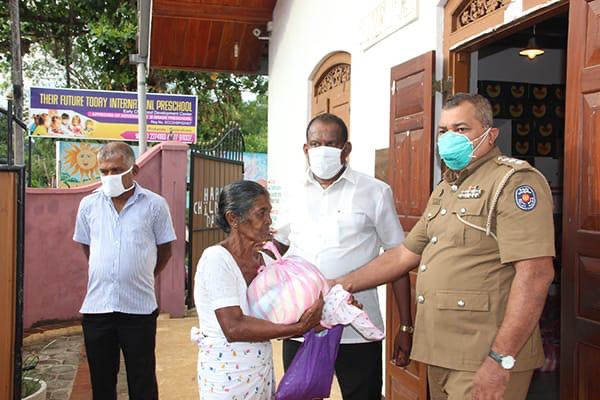
TFT and Marcia are now raising money for food parcels for disadvantaged Sri Lankan families. These parcels contain enough dry essentials to keep a family of six going for one week, and cost just £10. So far Marcia has raised nearly £400, which will pay for 40 parcels – keeping 240 people fed for a week.
Founded in 2005, following the devastating impact of the Asian tsunami of December 2004, ‘Their Future Today’ was set up to end the institutionalisation and suffering of vulnerable children disadvantaged through poverty in Sri Lanka. Marcia has helped the charity’s Shelter for abused women in the Kandy district and remote Tea Plantation villages, by supporting these rural areas with books for schools and clothes for the children, which they would not otherwise get.
If you would like to donate to help Marcia’s COVID-19 Sri Lanka Appeal, click here.
For the last couple of months, the world has changed massively since the arrival of the pandemic virus known as Coronavirus from China. CONEL sports student, Pierrette Simuene, talks about how has it affected education for students in the UK.
“In March 2020, all primary and secondary schools, colleges and higher education closed and we are all on partial lockdown. My college, the College of Haringey, Enfield, and North East London closed on 20 March 2020 and as per Boris Johnson’s request online classes began.
“I study the Sport – Level 3 course because I have an interest in sports and have knowledge and background in this sector. I also participate in sports professionally outside college in Track & Field. I also study this course because I would like to take on sports journalism in university and continue with this in my career path and be a presenter for companies such as BBC sports and Sky. I believe this course will help me to do this and help me learn different factors of the sporting industry.
“Online classes on Microsoft Teams have been incredible and the experience has been better than I expected. The teachers really try their hardest to make the lessons seem as if we were in college, which is fantastic as this helps us students understand the topic and the assignments further. However, the online sessions do have their disadvantages – some students have problems with their internet connections and others have may have other people in their property and not be able to listen properly due to the noise, which may reduce their rate of concentration.
“On the other hand, my sibling’s online classes differ to my online classes, because in the UK a lot of secondary school students are not verbally getting help from their teachers – they are being set homework and revision, using programmes such as Show My Homework. This differs massively from my college, as they are not being able to receive the help they need. Also, GCSE students are massively impacted, but they can take exams when the pandemic has gone.
“Although there are online classes for all individual pupils in my class, my friends have also found this challenging as lot of them are visual learners and they like to work in small teams and participate in small groups to help them guide them though the different stage of the assignments. This helps them aim and target themselves to achieve Merit and Distinction. However, they do enjoy the ability of being able to learn online and continue to complete work to finish off the year.”

